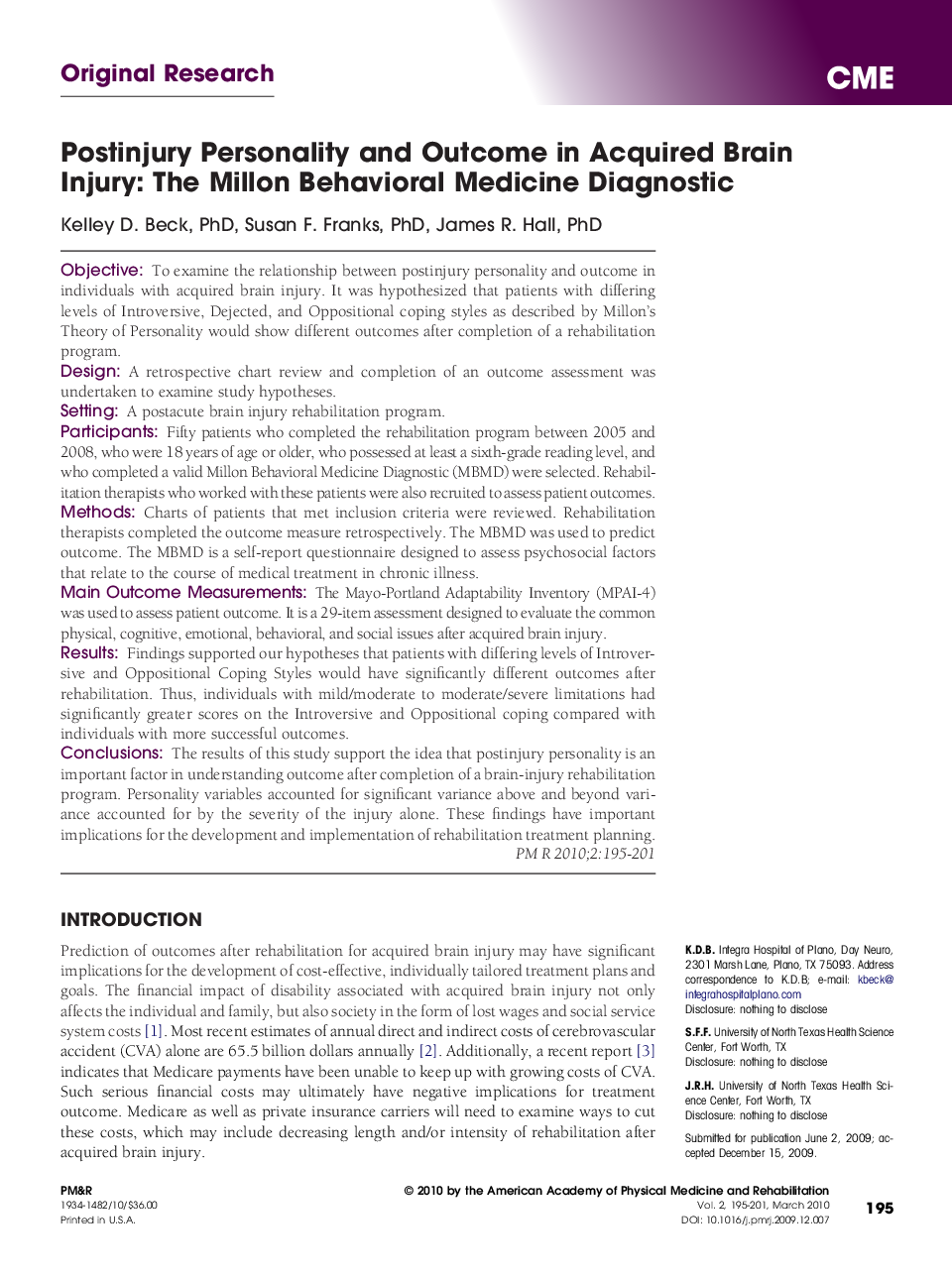| Article ID | Journal | Published Year | Pages | File Type |
|---|---|---|---|---|
| 2706505 | PM&R | 2010 | 7 Pages |
ObjectiveTo examine the relationship between postinjury personality and outcome in individuals with acquired brain injury. It was hypothesized that patients with differing levels of Introversive, Dejected, and Oppositional coping styles as described by Millon's Theory of Personality would show different outcomes after completion of a rehabilitation program.DesignA retrospective chart review and completion of an outcome assessment was undertaken to examine study hypotheses.SettingA postacute brain injury rehabilitation program.ParticipantsFifty patients who completed the rehabilitation program between 2005 and 2008, who were 18 years of age or older, who possessed at least a sixth-grade reading level, and who completed a valid Millon Behavioral Medicine Diagnostic (MBMD) were selected. Rehabilitation therapists who worked with these patients were also recruited to assess patient outcomes.MethodsCharts of patients that met inclusion criteria were reviewed. Rehabilitation therapists completed the outcome measure retrospectively. The MBMD was used to predict outcome. The MBMD is a self-report questionnaire designed to assess psychosocial factors that relate to the course of medical treatment in chronic illness.Main Outcome MeasurementsThe Mayo-Portland Adaptability Inventory (MPAI-4) was used to assess patient outcome. It is a 29-item assessment designed to evaluate the common physical, cognitive, emotional, behavioral, and social issues after acquired brain injury.ResultsFindings supported our hypotheses that patients with differing levels of Introversive and Oppositional Coping Styles would have significantly different outcomes after rehabilitation. Thus, individuals with mild/moderate to moderate/severe limitations had significantly greater scores on the Introversive and Oppositional coping compared with individuals with more successful outcomes.ConclusionsThe results of this study support the idea that postinjury personality is an important factor in understanding outcome after completion of a brain-injury rehabilitation program. Personality variables accounted for significant variance above and beyond variance accounted for by the severity of the injury alone. These findings have important implications for the development and implementation of rehabilitation treatment planning.
